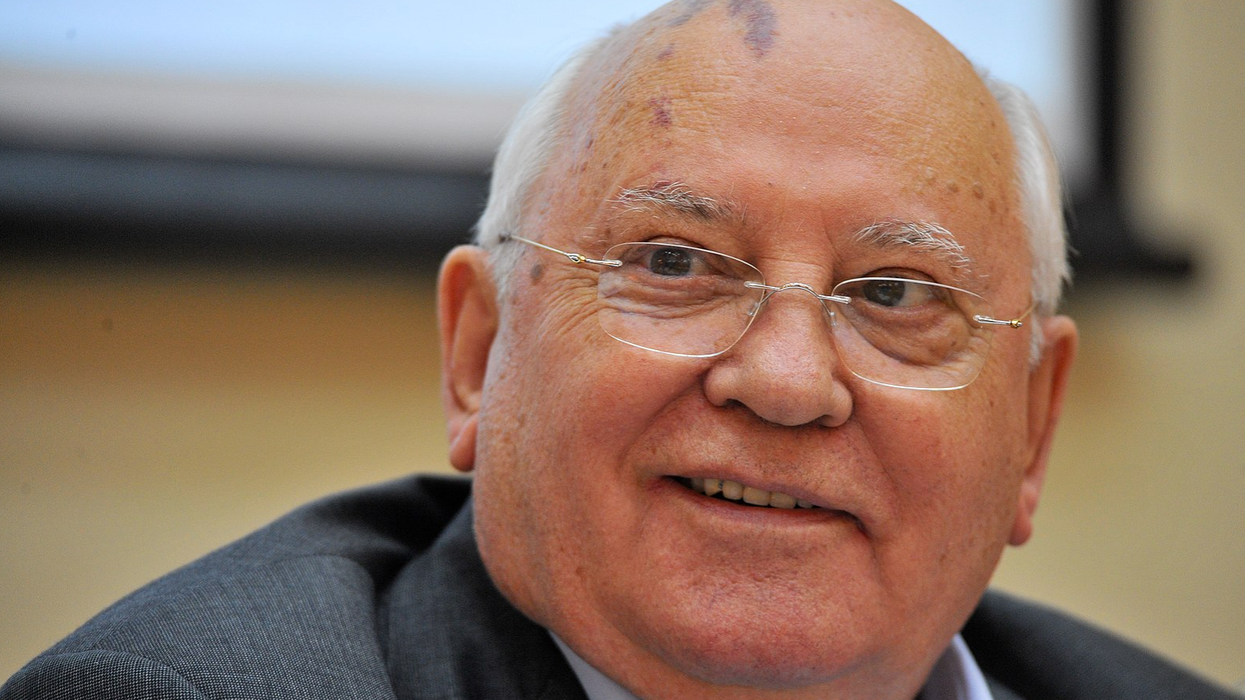Mikhail Gorbachev leaves behind a complicated and contentious legacy: analysis


In the wake of Mikhail Gorbachev's death, a new analysis is explaining the essence of the late Soviet Union leader's greatness. In a piece published by The Atlantic, Tom Nichols began with a brief overview highlighting the significance of Gorbachev's efforts.
"He was smart, and unlike many of his older colleagues, he had not deluded himself about the parlous condition of the Soviet economy and society. He had a vision for the U.S.S.R. that was ambitious enough to worry the old men around him in the Kremlin, so much so that when Andropov died, in 1984, they stiff-armed Gorbachev and made him cool his heels for another year while a terminally ill nobody named Konstantin Chernenko was allowed to preside over the party and the Soviet government.
"When Chernenko died, in 1985, Gorbachev defeated one more challenger—a genuinely dangerous man named Grigorii Romanov—and he became the top Soviet leader."
READ MORE: GOP senator faces intraparty opposition over his push to have abortion protesters arrested
Reflecting on the tributes made in light of Gorbachev's highly publicized death, Nichols offered clarity on his intent for the Soviet Union.
"As you listen to the tributes, remember always that Gorbachev was trying to rescue, rather than destroy, the U.S.S.R. and Soviet Communism. We should all be thankful that he did not succeed in his mission," Nichols wrote. "He was too decent for a job that required a fundamental lack of decency. In the end, he showed the courage and humanity not to use force to try to turn back the clock—a lesson lost on his latest successor, Vladimir Putin."
Nichols went on to note break down Gorbachev's work as a Soviet reformer. "Although Gorbachev is now known as a reformer, he was a Soviet reformer. He was brought to Moscow under the aegis of his patron, General Secretary Yuri Andropov, the former head of the KGB," he wrote.
"Andropov, too, was a Soviet reformer, in that he wanted a leaner and meaner Soviet Union, a more efficient Soviet state, and a more diligent, and more sober, Soviet workforce," he added. "He tried to develop protégés, such as Gorbachev, who would further this mission and save the U.S.S.R. from what the Soviets would come to call the 'era of stagnation' under Leonid Brezhnev."
In another piece chronicling Gorbachev's life and all that he accomplished, Erik Loomis contrasted the truth against the lingering perception of Gorbachev within Russia:
Gorbachev became a sort of hero in the west. But he became that hero precisely because he was a massive failure. We have to see his legacy in the light of how he is perceived in Russia, not just that he helped the US win the Cold War. The bitterness toward him in Russia is very real and I’m not sure the world is better off for his failures. It’s not that the American evaluation of Gorbachev has no value. But we have to remember that the world is not made up of Americans and the contempt for him at home probably should mean more than what we Americans think.
Of course, the world probably is a better place for Gorbachev’s life. His actions in 1989-1991 could have been so much worse and resulted in the killing of many people. But again, we can’t just look at him as a hero because his life also ended up serving American interests.
He’s not an American after all. He’s a Russian. If we don’t consider how people see him in his beloved home, we are myopically seeing the world through American lenses. Let’s try not to do that today.
READ MORE: Mikhail Gorbachev has died. Who was he?